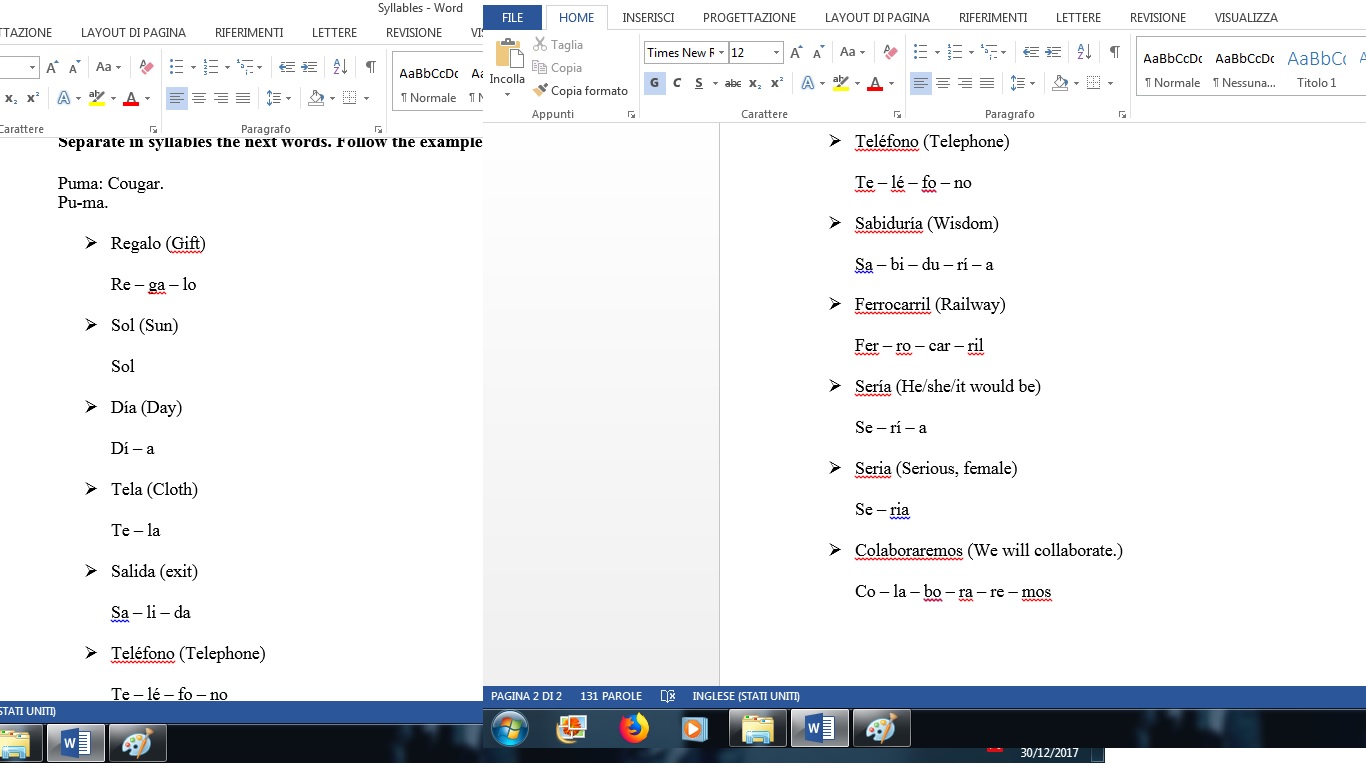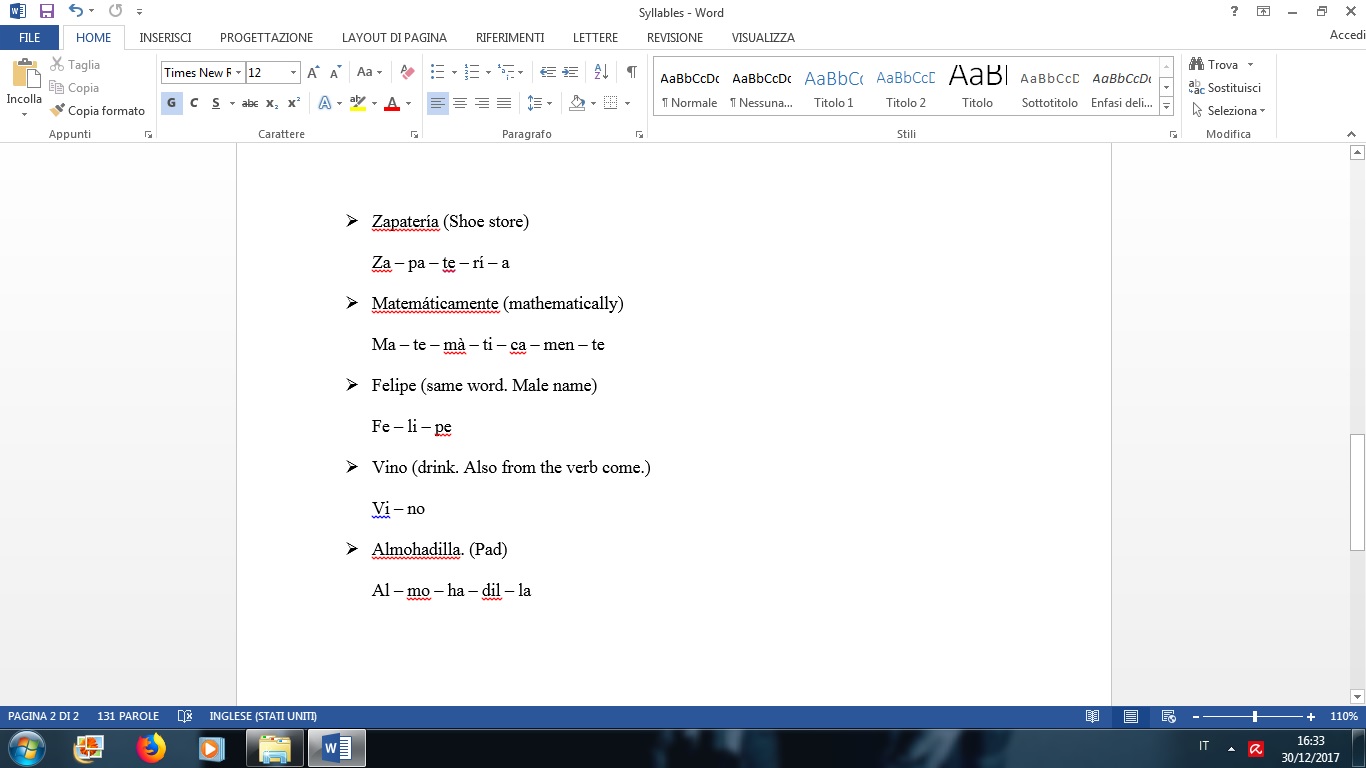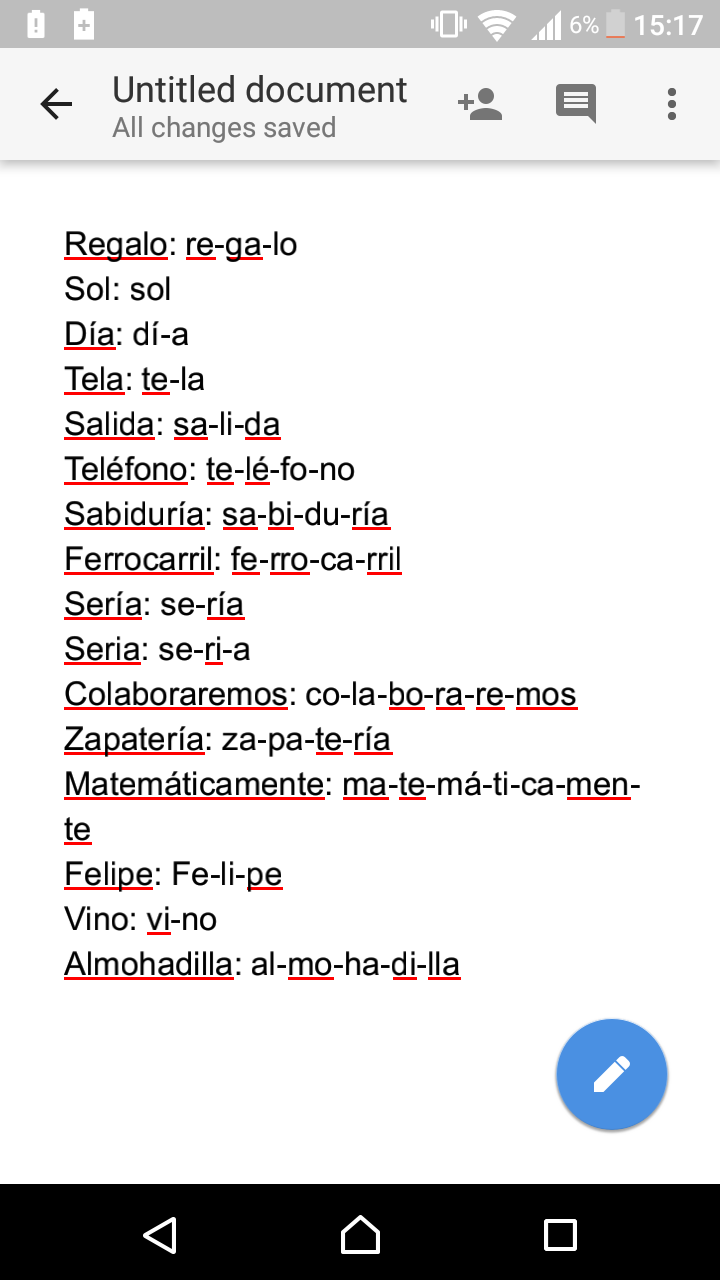I got it! Don’t worry, with the time you will learn.
I finally did my exercise, but I’m not sure about the results…  No need to hurry to correct it anyway…
No need to hurry to correct it anyway… 



Very good!! Just 2 corrections:
Ferrocarril and almohadilla, check them out again. 
OT: I’m sick, I will rest now.
Really!? Yay!  I’ll check them as soon as possible…
I’ll check them as soon as possible… 
 get well soooon!!
get well soooon!! 


My corrections:
1- Ferrocarril
Fe - rro - ca - rril
2- Almohadilla
Al - mo - ha - di - lla
( hope it’s right now…  )
)
Yes! They’re very well separated now! Congratulations! 

Thank you so much! 

@lpfan61 very good! Remember this… when there are two same words together like rr or ll and two vowel for example ía you can not seperate it.
ía ( in this case with the stress in the í)it is a type of composition named Diptongo in spanish. The teacher will teach you in the future 

Thank you! I understood now… 



My homework 
Good work!

 But there are some mistakes, find them! check my last reply and correct them!
But there are some mistakes, find them! check my last reply and correct them!
The words with “ria” and “ría” check them out again. The rest is excellent.
Second exercise
Difficult level: Normal.
As you probably realized, the previous words were, relatively, easy to separate. Now we are going to do the same, BUT with inverted sylables:
EXAMPLE:
Espárragos:
Es-pá-rra-gos.
As you can see there, in Spanish we can write first the vowel and after the consonant, like some words in English too.
- Inservible (useless)
- Campeón (champions)
- Odontología (odontology)
- Antibiótico (antibiotic)
- Profesión (profession)
- Estadística (stadistic)
- Anteriormente (previously)
- Chucho (dog, in Guatemala)
- Espejo (mirror)
- Seiscientos (six hundred, 600.)
Third exercise:
Difficult level: unnecessary complicated(?) Jajaja jk.
Real level: hard.
Some words have until 5 letters in one syllable.
EXAMPLE:
Transportaciones:
Trans-por-ta-cio-nes
In this case we use a combined letter “tr” and linked it with the “a” for linked with the sound of the “n” and the “s” that’s because we have five letter in that sylable. The sound of the “ns” is similar to the one in “answer” “ans-wer”
Exercise:
- Transatlántico (transatlantic)
- Paul (Same word, male name)
- Chester (Same word, male name)
- Desprendimiento (detachment)
- Chozita (little hut)
- Esternocleidomastoideo (sternocleidomastoid)
- Veintiséis (twenty six)
- Psicóloga (psyclologist)
- Añorable (yearnable)
- Escuadrón (squadron)
Next themes:
- Tonic syllable and unstressed syllable.
- Accentuation of the words.
Is it día? Unseparated?
Ser-ía
Se-ria
I hope it’s right now 
Just seria is ok. The other no.
See this example:
Diría:
Di-rí-a
In this case, each syllable starts with the consonant and then the vowel.
Try again, and remember:
“ia”=together.
“ía”=separate.
I’m sorry @IronSoldier16 but ía can not be separate. Like ia because is a diptongo
Seria se_ria
Sería se_ría
Es posible, la tilde en la i lo permite y lo exige, por eso Mario se separa en MA-RIO y María en MA-RÍ-A incluso el sonido te lo indica 
@IronSoldier16 Cierto. Tienes razón… porque es un hiato…
@lpaniist día is correct. You wrote it well. It has 2 syllable. I’m sorry I was wrong.
Todo bien. Incluso vamos a ver diptongos, triptongos e hiatos después de las sílabas tónicas y átonas. Por cierto ¿Qué hora es allá?
